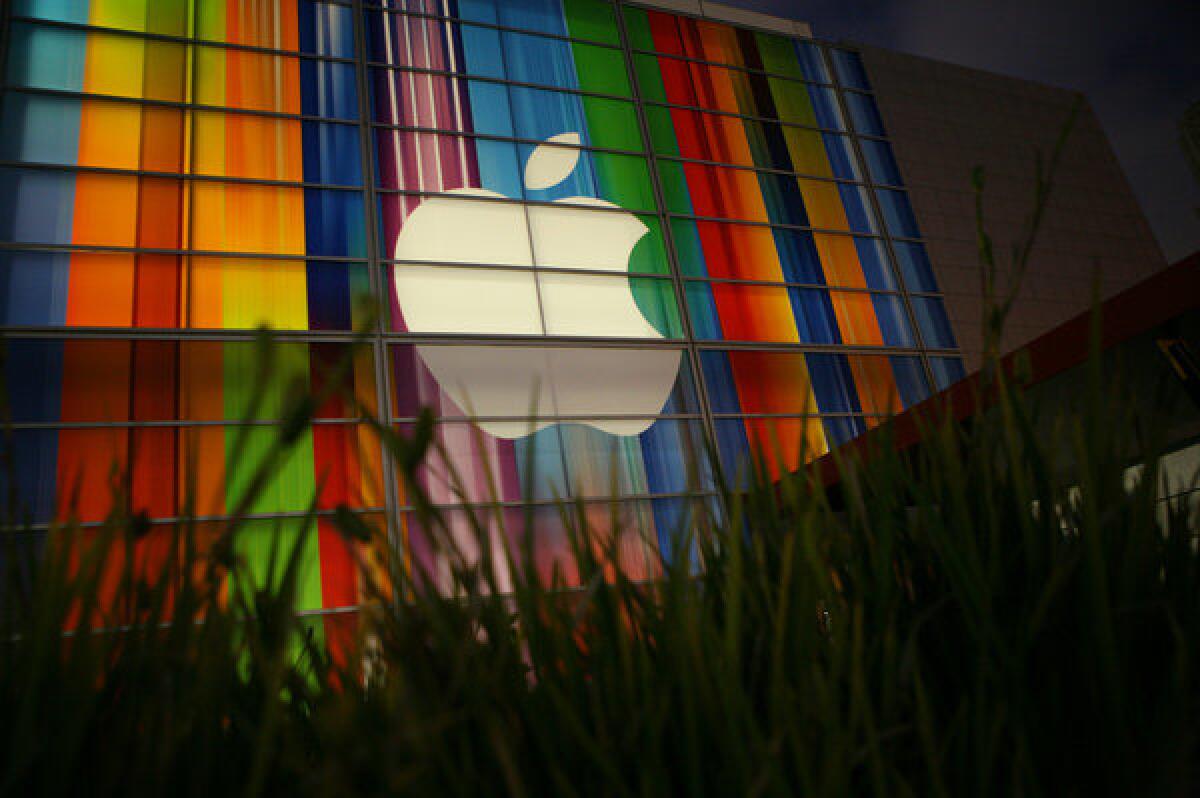All eyes on Apple as e-book price-fixing trial begins

- Share via
Apple headed to court Monday, as its e-book price fixing trial begins. The U.S. Justice Department alleged last year that Apple had conspired with five publishers to set the prices for e-books when it was planning to launch the iPad and enter the e-book market.
The trial, which will feature appearances from some of the major players in publishing, will provide some window into how the introduction of e-books changed the business of publishing. Representatives from Amazon and Barnes & Noble are expected to appear.
The Justice Department has suggested that Apple and the five publishers created their agreement to be able to raise e-book prices. With the launch of Apple’s iBookstore, publishers began using the so-called agency model, in which they set the retail price for their books and split the proceeds with Apple, the retailer, which served as the “agent” in the sale. The arrangement was similar to the way Apple sells music in iTunes.
Publishers had been frustrated by Amazon’s e-book marketing efforts; in selling many e-books for $9.99, it was pricing them below the wholesale price. Publishers were getting the same amount at wholesale — Amazon absorbed the loss — but there was concern that readers were becoming accustomed to the $9.99 price, which publishers could not sustain on their own.
The publishers involved have all settled with the Department of Justice — Penguin for $75 million; Hachette, HarperCollins, and Simon & Schuster for $69 million; and Macmillan for $26 million — some saying that they simply could not afford the legal battle.
Apple, which the Justice Department believes to have been the leader in the scheme, has committed to fight, which it can well afford to do. While the CEOs of the five publishing houses will testify, the case’s star witness may well be Apple’s late executive Steve Jobs.
An email Jobs wrote to James Murdoch of News Corp., which owns HarperCollins, is expected to be produced as evidence. In it, Jobs writes: “Throw in with Apple and see if we can all make a go of this to create a real mainstream e-books market at $12.99 and $14.99.”
The Justice Department is also said to be using quotes from Jobs’ authorized biography in its case. According to the BBC, Jobs is quoted in describing the strategy as an “aikido move.” The pretrial findings also point to a quotation in which Jobs admits that he told publishers, “We’ll go to the agency model, where you set the price, and we get our 30%, and yes, the customer pays a little more, but that’s what you want anyway.”
Apple, however, denies the charges and says that the quotations and emails were taken out of context. “We’ve done nothing wrong,” Apple Chief Executive Tim Cook said in an onstage interview in California last week. “We’re going to fight.”
District Judge Denise L. Cote hinted in her pretrial “tentative view” that the government has a strong case: “I believe that the government will be able to show at trial direct evidence that Apple knowingly participated in and facilitated a conspiracy to raise the prices of e-books, and that the circumstantial evidence in this case, including the terms of the agreements, will confirm that.”
The three-week-long, non-jury trial is being held in Manhattan.
ALSO:
Why William Bennett doesn’t think you need to go to college
With ‘Americanah,’ Chimamanda Ngozi Adichie pokes fun at race
The artful meditation of Karen Green, David Foster Wallace’s widow
More to Read
Sign up for our Book Club newsletter
Get the latest news, events and more from the Los Angeles Times Book Club, and help us get L.A. reading and talking.
You may occasionally receive promotional content from the Los Angeles Times.









